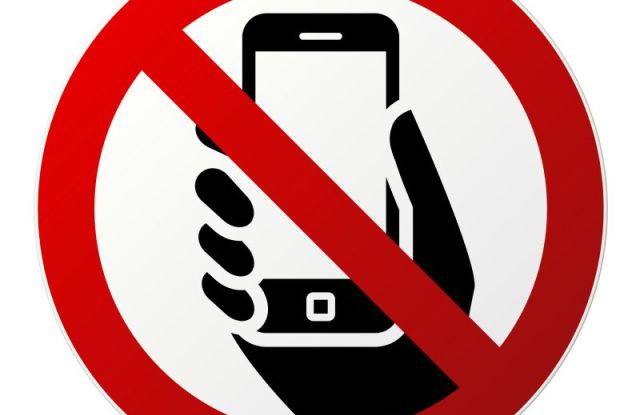Should We Celebrate the Loss of Innocence?

One day Andrew Shearman said something to me that stopped me in my tracks, “We need to celebrate the loss of innocence.”
Celebrate the loss of innocence? Why? Aren’t we jaded enough? Isn’t the evil and messiness of this world something better avoided?
Innocence implies a guiltlessness that is often the result of non-engagement. Children are innocent that way. The political issues that upset us haven’t touched their world yet. But if we are to address the pain caused by evil in this world – the pain that causes people to leave their homes and become refugees, for example – we can’t avoid confronting evil.
Innocence vs responsibility
And that leaves us with a question: Is it better to engage evil and become responsible or to remain innocent and allow evil to continue its work? I’ve watched a generation of young people say, “There is a moral equivalency to choice. Evil is ambiguous, not personal.”
When we engage with the ambiguity of evil, we may well end up with more confusion than clarity. Richard Rohr says: “One always learns one’s mystery at the price of one’s innocence.” There are parts of us that we don’t understand, that are a mystery. Our lack of awareness is a kind of innocence.
The word innocent comes from the Latin for unwounded or not harmed. Rohr says, “The innocent one hasn’t yet learned from his or her wounds, and therefore doesn’t know his or her full reality yet.”
In other words, when we are exposed to pain, we begin to lose our innocence.
Moving toward maturity
David Whyte says that when we’re innocent, we’re postured to move toward maturity:
Innocence is…not a state of naivety. It’s the ability to be found by the world you’re now inhabiting. We’re supposed to give ourselves away, actually. A sign of maturity is understanding that you’re a mortal human being and you are going to die. Maturity is realizing that the rest of creation might be a little relieved to let you go. That you can stop repeating yourself, stop taking all this oxygen up, and make way for something else which you’ve actually beaten a trail for. It could be your son, your daughter, could be people you’ve taught or mentored.
To move toward maturity, we must lose our innocence. Paul rebukes the Corinthian church, “I gave you milk, not solid food, for you were not yet ready for it. Indeed, you are still not ready.” (1 Cor. 3:2) To grow up, they needed to move into a place of responsibility, owning the consequences of their actions.
Where was God when innocence was taken, when the thief came? He allowed the pain of banishment and a loss of intimacy to flow from choice.
Cause for celebration
So while the consequences of a poor choice are not something we celebrate, the potential to move from innocence to a place of responsibility is. When we make disciples of others, we lead them out of their season of ignorance and show them both the necessity of choice and the horror of evil.
I hate the sex trade in Thailand. I am deeply troubled by the plight of so many vulnerable children in Swaziland. But I’m so thankful that I’ve been exposed to the pain they feel so that I might have the opportunity to help them.
And if you join me in touching their pain in a way that is novel for you, then perhaps we will have cause to celebrate the loss of your innocence as well. We may not throw a party, but the newfound compassion you feel that motivates you to show you care can be a thing of beauty.



that’s good.
I really enjoyed this blog. Reading through the “Cause for Celebration” section certainly makes me think through the idea of sheltering my kids to much. How can their level of compassion increase if they are not exposed to the pain that exists outside of their bubble?
Exactly. What a great question for parents to ask.
Very thought provoking Seth. At first glance, I thought why would we want to celebrate the loss of innocence, but you are right. We raise our children and do everything in our power to protect from the world. In our family, we chose to homeschool to instill godly values and God’s word into our kids. However, there is a time to send them out of the nest and into the world to put the Word and His values into action. There is a time for girls and boys to become men and women of God. They must lose their innocence by gaining knowledge of the evils of this world and be able to step in and influence change. We as parents or adults must lose our innocence in knowledge so that we can become passionate about fighting the evils of this world.
Throughout our lives, the loss of innocence hopefully caused us to cry out to God for forgiveness thus driving us closer to Him making us recognize how depraved we are without Jesus.
Lord, let our loss of innocence drive us to action in our own lives and the lives of others.
Thanks Seth for making us think today.
The irony is that our children suspect that they were made for a purpose, that they could spend themselves on behalf of the poor. That their identity is not that of a hero, but is linked to the self-sacrifice that made them someone’s hero.
I really like the way that idea challenges status quo and political correctness.
It’s really just another proof of God working all things for the good of those who love Him
Wow. I’ve never thought of celebrating the loss of innocence, but it’s so true and needed when you explain it that way. We are praying for you and look forward to your arrival here in Spain.
Brokenness. . . the ability to see in ourselves the need for God’s Holy Spirit to enter in and speak truths and heal. . . that’s the true gift/fruit that the loss of innocence can yield.
Our son is nearing completion of his WR Gap Year. His squad has experienced much exposure to the results of evil in our world–suffering from lack of food, shelter, family and work–that is heartbreaking. But, they have also experienced the love of Christ in those same people. He has been comforted and given comfort. Has celebrated life in those places as a person with nothing to offer but himself and his presence.
A great lesson was given to me by our son on our Parent Vision Trip in Granada, Nicaragua. We were on “Gringo Street” and an older local teen came by, who was selling pottery on the street. He had offered his goods to us earlier that day in another place, and he didn’t immediately recognize us. Then he did. He kind of grimaced, and moved to walk away. But, our son engaged with him, moving towards him and asked his name.
Just like that, the young man smiled more genuinely and sat down with us.
He shared with us how he travels a long distance to come to this area that used to have more tourists than it does now in order to sell pots so that he can help provide for his family. Our son shared with him about why he is in Nicaragua and what he’s doing. Two young men, shooting the breeze.
After the young man left, our son turned to us and said: “I’m here for a month. Yes, he’s a street vendor, but he’s also a person who wants and needs to be seen. I will get to know many of these people while I’m here: they are part of my community. I’m here to love on people. That’s what I have to offer.”
Innocence is a protected state. We as parents protect our young for a time, until they are more prepared to deal with the adversity ahead of them. ‘
The easiest answer to protect people from evil is to attempt to control it, subdue it. But, it will keep rising up, like whack-a-mole.
The hardest (and most effective) answer is to love.
And while we’d love to just provide for the needs of those struggling around us with our money and possessions, what’s often the most valuable is our time and our love. Our prayers and our care.
When Jesus sent out the disciples two-by-two, he told them to carry nothing. What they already had and could offer to those that they encountered was everything (Christ).
Thanks for you post and your desire to bring these experiences to our young people (and old people) today.
What great insight, Matt. Thank you.